MercoPress. South Atlantic News Agency
Agriculture
-
Monday, November 23rd 2020 - 09:12 UTC
Highly contagious strain of bird flu forces Netherlands to cull tens of thousands of chickens

Dutch authorities have culled some 190,000 chickens after a highly contagious strain of bird flu broke out in at least two poultry farms, the agriculture ministry said on Sunday.
-
Tuesday, November 17th 2020 - 09:31 UTC
Falklands meat industry will not contract overseas workers this summer

As a result of the significant operational and financial risks presented by the global pandemic, the Falkland Islands Meat Company, FIMCo, in consultation with the autonomous government of the Islands, FIG, and elected lawmakers, MLAs, has made the decision not to employ any overseas meat workers this summer.
-
Tuesday, November 17th 2020 - 09:25 UTC
Argentina meat industry plans investments to increase exports 33% in three years
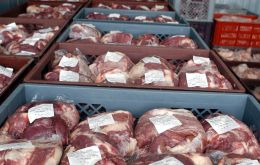
Argentine meat processing plants will invest US$ 187 million in a bid to increase exports from the country by 33% over three years to 1.2 million tons per year, the head of a local trade group said on Monday during a conference with government officials.
-
Tuesday, November 17th 2020 - 08:56 UTC
Europe bird flu outbreak extends to France and Denmark; thousands of chickens culled
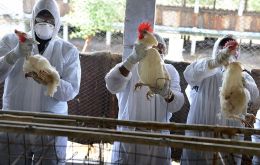
France and Denmark confirmed bird flu cases on Monday days after an outbreak in the Netherlands triggered a massive cull. Hundreds of hens were killed after the virus was detected in a garden centre on the French island of Corsica, and the Danes said more than 25,000 birds would be slaughtered after the virus emerged in the west of the country.
-
Monday, November 16th 2020 - 08:18 UTC
China claims it found coronavirus on beef and tripe from Argentina, Brazil, Bolivia and New Zealand

The eastern Chinese city of Jinan said it has found the new coronavirus on beef and tripe, and on packaging for these products from Brazil, New Zealand and Bolivia as China ramps up testing on frozen foods.
-
Saturday, November 14th 2020 - 07:30 UTC
Brazil record rice exports and imports during October
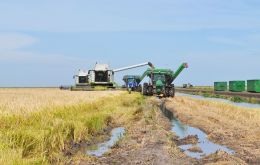
Data from SECEX (foreign trade secretariat) compiled by ABIARROZ (Brazilian rice industry association) shows that Brazilian rice exports (husk base) totalled 153,500 tons in October, a volume 84% higher than in the same month of 2019 (83,570 tons).
-
Thursday, November 12th 2020 - 08:40 UTC
Stoppages in Argentine grain ports stalls loading

The loading of five cargo ships in different grains ports in Argentina has been stalled for days due to strikes by port workers, the labour union representing the employees and an industry source said on Wednesday.
-
Tuesday, November 10th 2020 - 11:44 UTC
Brazil allows import of genetically modified soy and corn from United States
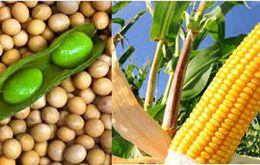
Brazil has issued a protocol instruction legally authorizing imports of genetically modified (GM) soy and corn from the United States at a time when Brazil is dealing with low stocks and record prices for these products.
-
Wednesday, November 4th 2020 - 08:50 UTC
US soybeans being loaded in Louisiana for Brazil
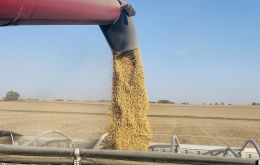
A U.S. grain export terminal near Baton Rouge, Louisiana, is loading about 38,000 tons of U.S. soybeans on a bulk cargo vessel for shipment to Brazil, according to Southport Agencies shipping lineup.
-
Tuesday, November 3rd 2020 - 08:20 UTC
Brazil launches network on Artificial Intelligence applied to the auto industry and agribusiness sectors

The Brazilian government has announced the launch of a national innovation network focused on artificial intelligence (AI) with the aim of increasing the production capacity and competitiveness of local companies.